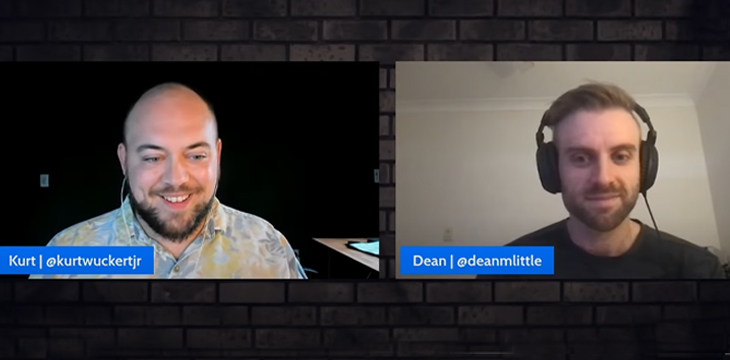|
Getting your Trinity Audio player ready...
|
https://www.youtube.com/watch?v=9b4jcUOLMPg
Bitping CEO Dean Little has been building blockchain apps for five years. He began building with EOS, Ethereum, and Tron but later realized that these chains would struggle from congestion. As he tells Kurt Wuckert Jr. on this episode of CoinGeek Weekly Livestream, these chains don’t scale as BSV does. He says, “The fees would go through the roof or the asset would inflate into oblivion.” For his part, that’s a problem when it comes to building businesses on the blockchain.
Little and his team joined the inaugural Bitcoin SV virtual hackathon in 2019. Their hackathon entry, now known as Bitping, was then called UptimeSV. His team won the hackathon, and Little has since been part of the BSV community working on several apps, including Twetch.
Before building apps, Little spent time working in the aerospace industry. As he explains, “I was working for an aerospace start-up out of Norway and I was mostly working on ballast control systems.” He was part of a group that launched rockets from the equator out of the ocean.
Wuckert and Little talked shop for the most part of the episode, deep diving into the technical aspects of blockchain technology. Here are a few takeaways from the conversation.
Little was keen to point out that the tooling mechanism on BSV can be improved, especially in Bitcoin wallets.
“I think we could make a lot of progress by upgrading the transaction format to a way, to a format that is easier to work with and it could compile back down to the existing format. But basically, I think we could make transactions easier to work with and more performant. I also think like we should consider things like compression, just like the size of the blockchain could decrease by 20 percent just with compression,” he explains.
Little was also keen on sharing his opinion on bitcoin coding or utility paradigm adopted by unwriter, to which he says, “I think he adopted the paradigm of like, let’s scale Bitcoin and JavaScript and MongoDB and that’s not very clever in my opinion.” He goes on to explain that Bitcoin will not scale that way. Adding that he personally disagrees with the way unwriter refused to take money for his services. For his part, refusing to accept money led the platform to go offline, leaving users hanging.
“All these people who had all this momentum from using these tools, right? That was all lost. And that’s a real shame because things were moving really fast. And I think if he had just charge money for his services, we would have seen a better result,” Little points out.
Imposing sanctions or banning digital currency transactions in countries was also brought up in the discussion. Little was keen to point out that every country in the world has tried to ban bitcoin transactions but hasn’t been successful at it.
“Do you really think that there is a government that would be better at controlling economic activity than China? And yet, like every Chinese person I know, owns like 10, 20 cryptos at least so I don’t believe that governments will be successful in banning large numbers, put it that way,” he says, citing China as an example.
Watch: CoinGeek New York panel, Blockchain: The Future of Technology Building on Achievements of the Past
https://www.youtube.com/watch?v=lK8-86QLmIs

 02-19-2026
02-19-2026 




